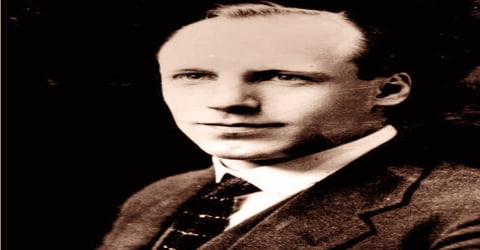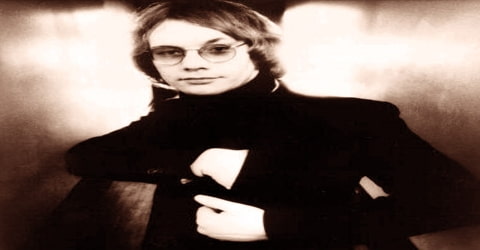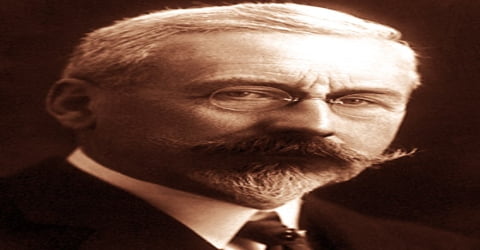Biography of Eric Liddell
Eric Liddell – Scottish Olympic Gold Medalist runner, rugby union international player, and Christian missionary.
Name: Eric Henry Liddell
Date of Birth: 16 January 1902
Place of Birth: Tianjin (Tientsin), Qing Empire (China)
Date of Death: 21 February 1945 (aged 43)
Place of Death: Weihsien Internment Camp, China
Occupation: Athlete
Spouse/Ex: Florence Mackenzie (m. 1934–1945)
Children: Maureen Liddell, Patricia Liddell, Heather Liddell
Early Life
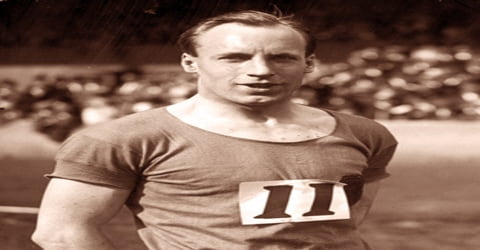
Eric Liddell, the British runner who won a gold medal in the 400-meter run and a bronze in the 200 meters at the 1924 Olympic Games in Paris, was born 16 January 1902, in Tientsin, China, the second son of the Reverend and Mrs. James Dunlop Liddell, Scottish missionaries with the London Missionary Society. He attended a boarding school near London, spending time when possible with his family in Edinburgh, and afterward attended the University of Edinburgh.
Eric was known as a brilliant sportsman in his school and college. After learning Pure Science from University of Edinburgh and side by side taking part in races and rugby matches, Liddell ran in 400 meters at the 1924 Summer Olympics in Paris and made a world record in the process. But athletics was not the true calling of his life he left all the fame and glory to serve as a missionary in China, just like his parents. He became a schoolteacher there to teach and spread the word of God. Liddell was the one who sacrificed his life for the emancipation of China during its worst time the Japanese invasion of China in 1937.
Even though Eric Liddell had fame and riches within his grasp, he chose to live a dangerous and humble life in China. People of faith everywhere have been inspired by the giving heart and unwavering conviction of Eric Liddell. He considered Sunday to be sacred, a day set apart for the Lord. Honoring his convictions, he refused to run his best event on a Sunday in the 1924 Olympics. This aspect of his life was depicted in the movie Chariots of Fire. His surname rhymes with “middle.”
Liddell’s Olympic training and racing, and the religious convictions that influenced him are depicted in the Oscar-winning 1981 film Chariots of Fire, in which he is portrayed by fellow Scot Ian Charleson.
Eric Liddell first gained national recognition by winning the 100- and 200-metre runs at the Amateur Athletic Association championships in 1923. At the 1924 Olympics, Liddell, a devout Christian, dropped out of the 100-meter run his strongest event because the final was scheduled for a Sunday. Instead, he trained for the 200- and 400-metre runs. At the Games, he finished third in the 200-meter run and turned in a remarkable performance to win the 400 meters. Starting in the outside lane, Liddell sprinted out of the blocks and set such a blistering pace that two racers stumbled trying to keep up. He won the race in a record time of 47.6 seconds.
His life is an example of love, sacrifice, and true humanity, he lived for the gold far greater than the Olympics gold – the gold of being able to bring change into people’s lives.
Childhood, Family and Educational Life
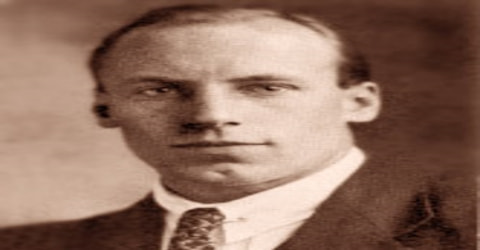
Eric Henry Liddell, fondly called the “Flying Scotsman,” was born on January 16, 1902, in Tientsin, north China to Reverend James Dunlop Liddell. His parents were Scottish missionaries with the London Missionary Society, stationed in China at the time he was born.
Liddell went to school in China until the age of five. At the age of six, he and his eight-year-old brother Robert were enrolled in Eltham College, a boarding school in south London for the sons of missionaries. Their parents and sister Jenny returned to China. During the boys’ time at Eltham, their parents, sister, and new brother Ernest came home on furlough two or three times and were able to be together as a family, mainly living in Edinburgh.
At Eltham, Liddell was an outstanding sportsman, being awarded the Blackheath Cup as the best athlete of his year, playing for the 1st XI and the 1st XV by the age of 15, later becoming Captain of both the cricket and rugby teams. His headmaster at Eltham described him as being: “entirely without vanity.”
While he was studying at the Oxford College in England, stories of him being the fastest runner in Scotland started to do the rounds. He was seen as the potential Olympic winner. Not just a sportsman, Liddell was also a strongly principled Christian, which is why he was selected to speak at the Glasgow Students’ Evangelical Unit. In 1920, he enrolled himself at the University of Edinburgh to pursue Pure Science.
Liddell was chosen to speak for Glasgow Students’ Evangelical Union (GSEU) because he was so well known. The GSEU hoped that he would draw large crowds so that many people would hear the Gospel. The GSEU would send out a group of eight to 10 men to an area where they would stay with the local population. It was Liddell’s job to be the lead speaker and to evangelize the men of Scotland. Many came to see him because he was an accomplished athlete, but all heard his message of faith.
In 1922 and 1923, Liddell played in seven out of eight Five Nations matches along with A. L. Gracie. In 1923 he won the AAA Championships in athletics in the 100-yard race (setting a British record of 9.7 seconds that would not be equalled for 23 years) and 220-yard race (21.6 seconds). He graduated with a Bachelor of Science degree after the Paris Olympiad in 1924.
Personal Life
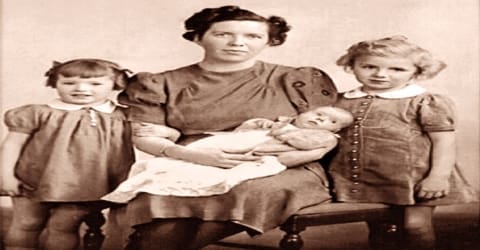
(Eric Liddell’s wife Florence Mackenzie, and their daughters)
In 1934, after getting ordained a minister of religion, Eric Liddell got married to a Canadian missionary, Florence Mackenzie. Liddell courted his future wife by taking her for lunch to the famous Kiesling restaurant, which is still open in Tianjin.
The couple had three daughters, Patricia, Heather and Maureen, the last of whom he would not live to see. The school where Liddell taught is still in use today. One of his daughters visited Tianjin in 1991 and presented the headmaster of the school with one of the medals that Liddell had won for athletics.
Career and Works
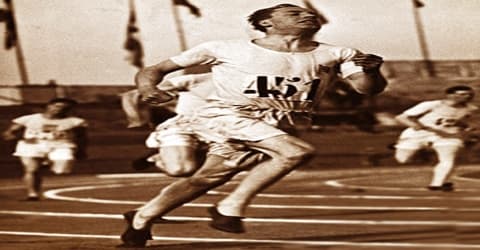
Eric Liddell was triumphant in various British competitions, winning the shorter sprint distances at the Triangular International Contests from 1921-1923; the competition showcased athletes from Scotland, England, and Ireland. He was included in the British Olympic squad which was destined for the Olympics in Paris in 1924, and although he was a strong contender in the 100 meters event, due to his religious principles, Liddell refused to run on a Sunday. He refused to run in the 100m heats, which were held on a Sunday and instead became a member of the squad designated to run in 400 meters, a distance which he could handle very well, but it was certainly not his specialty.
A great run won him not only a gold medal by a margin of some six meters, but also a world record of 47.6 seconds in the process was set.
On the morning of the Olympic 400-meter final, July 11, 1924, Liddell was handed a folded square of paper, a gift from one of the team masseurs. Reading it later he found the message: “In the old book it says: ‘He that honors me I will honor.’ Wishing you the best of success always.” Recognizing the (slightly misquoted) reference to 1 Samuel 2:30, Liddell was profoundly moved that someone other than his coach believed in him and the stance he had taken.
After the Olympics and his graduation, he returned to North China where he served as a missionary, like his parents, from 1925 to 1943. He first served in Tientsin (Tianjin) and later in Siaochang. Liddell’s first job as a missionary was as a teacher at an Anglo-Chinese College (grades 1-12) for wealthy Chinese students. He used his athletic experience to train the boys in a number of different sports. One of his many responsibilities was that of superintendent of the Sunday school at Union Church where his father was a pastor.
In 1925, at the Scottish Amateur Athletics Association meeting in Glasgow, he set his Scottish championship record of 10.0 seconds in the 100, won the 220-yard contest in 22.2 seconds and won the 440-yard contest in 47.7. He was only the fourth athlete to have won all three sprints at the SAAA, achieving this accomplishment in 1924 and 1925. These were his final races on the British grounds – he pursued his religious duties after this.
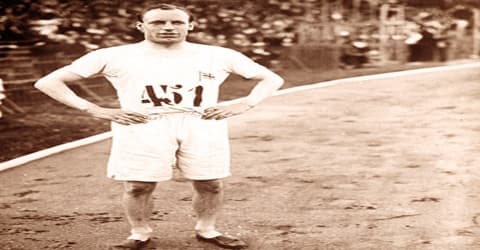
During his time in China as a missionary, Liddell continued to compete sporadically, including wins over members of the 1928 French and Japanese Olympic teams in the 200- and 400-meter races s at the South Manchurian Railway celebrations in China in 1928 and a victory at the 1930 North China championship. He returned to Scotland only twice, in 1932 and again in 1939. On one occasion he was asked if he ever regretted his decision to leave behind the fame and glory of athletics. Liddell responded, “It’s natural for a chap to think overall that sometimes, but I’m glad I’m at the work I’m engaged in now. A fellow’s life counts for far more at this than the other.”
During his first furlough in 1932, he was ordained as a minister of religion. His first job as a missionary was as a teacher at an Anglo-Chinese College (grades 1–12) for wealthy Chinese students. On his return to China in 1934, he married Florence Mackenzie whose parents were Canadian missionaries in Tientsin. Together they had three daughters, Patricia, Heather, and Maureen.
Liddell competed in races intermittently in China. His wins over the French and Japanese Olympic teams in the 200 and 400 meters at South Manchurian Railway celebrations in China (1928) and a victory at North China championship (1930) are worth mentioning.
In 1941 life in China had become so dangerous because of Japanese aggression that the British government advised British nationals to leave. Florence (who was pregnant with Maureen) and the children left for Canada to stay with her family when Liddell accepted a position at a rural mission station in Xiaozhang, which served the poor. He joined his brother, Rob, who was a doctor there. The station was severely short of help and the missionaries there were exhausted. A constant stream of locals came at all hours for medical treatment. Liddell arrived at the station in time to relieve his brother, who was ill and needing to go on furlough. Liddell suffered many hardships himself at the mission.
Meanwhile, the Chinese and the Japanese were at war. When the fighting reached Siaochang the Japanese took over the mission station. In 1943, Liddell was interned at the Weihsien Internment Camp where he became a leader at the camp and helped get it organized. Food, medicines, and other supplies ran short at the camp. In 1945, just after his 43rd birthday, he died as a result of a brain tumor, which may have been caused by overwork and malnourishment. Others who were in the same camp testify that Eric Liddell maintained his faith, courage, and kindness towards others until the end in spite of the pain he must have been experiencing. Here is the link for Recollections of Eric Liddell from the Eric Liddell Centre website.
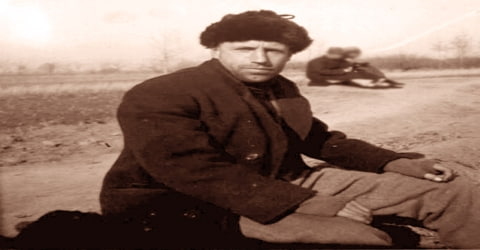
It was also claimed that one Sunday Liddell refereed a hockey match to stop fighting amongst the players, as he was trusted not to take sides. One of his fellow internees, Norman Cliff, later wrote a book about his experiences in the camp called “The Courtyard of the Happy Way” (Chinese 樂道院, also translated as “The Campus of Loving Truth”), which detailed the remarkable characters in the camp. Cliff described Liddell as “the finest Christian gentleman it has been my pleasure to meet. In all the time in the camp, I never heard him say a bad word about anybody”. Langdon Gilkey, who also survived the camp and became a prominent theologian in his native America, said of Liddell: “Often in an evening I would see him bent over a chessboard or a model boat, or directing some sort of square dance – absorbed, weary and interested, pouring all of himself into this effort to capture the imagination of these penned-up youths. He was overflowing with good humor and love for life, and with enthusiasm and charm. It is rare indeed that a person has the good fortune to meet a saint, but he came as close to it as anyone I have ever known.”
Awards and Honor
Eric Liddell was the most popular athlete Scotland has ever produced, according to the public voting for the first inductees for the Scottish Sports Hall of Fame in 2002.
In 2012 the University of Edinburgh launched a high-performance sports scholarship named after Liddell. It was announced during a visit by Patricia Russell, Liddell’s oldest daughter.
The Eric Liddell Centre was set up in Edinburgh in 1980 to honor Liddell’s beliefs in community service whilst he lived and studied in Edinburgh. Local residents dedicated it to inspiring, empowering, and supporting people of all ages, cultures, and abilities, as an expression of compassionate Christian values.
Death and Legacy
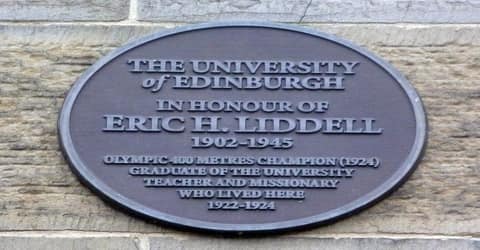
(Memorial Plaque at Edinburgh University)
Eric Liddell died in a Japanese camp in 1945, during WWII, in Weishien, China. was buried in the garden behind the Japanese officers’ quarters, his grave marked by a small wooden cross. The site was forgotten until it was rediscovered in 1989, in the grounds of what is now Weifeng Middle School in Shandong Province, north-east China, about six hours’ drive from Beijing. Its rediscovery was largely the result of the determination of Charles Walker, an engineer working in Hong Kong, who felt one of Scotland’s great heroes was in danger of being forgotten. His search for the grave proved difficult because, since Liddell’s death, place names had changed, documents disappeared and witnesses were difficult to find. He is interred in the Mausoleum of Martyrs in Shih Cha Chuang, China.
In his last letter to his wife, written on the day he died, Liddell wrote of suffering a nervous breakdown due to overwork. He actually had an inoperable brain tumor; overwork and malnourishment may have hastened his death. Liddell died on 21 February 1945, five months before liberation. Langdon Gilkey later wrote, “The entire camp, especially its youth, was stunned for days, so great was the vacuum that Eric’s death had left.” According to a fellow missionary, Liddell’s last words were, “It’s complete surrender”, in reference to how he had given his life to God.
The 1981 film Chariots of Fire commemorated the Olympic triumphs and contrasted the lives and viewpoints of both Liddell and Harold Abrahams. Eric Liddell ran for the glory of God and Harold Abrahams ran to prove his worth to a society that was anti-Semitic. Actor Ian Charleson portrayed Liddell and Ben Cross, Abrahams. One major historical inaccuracy in the movie surrounds Liddell’s refusal to run in the 100-meters race. The film portrays Liddell as finding out that one of the heats was to be held on a Sunday as he was boarding the boat that would take the British Olympic team across the English Channel on their way to Paris. As noted earlier, the schedule and Liddell’s decision were known well in advance. The scene in the movie where Liddell fell early in a 400-meter race in a Scotland-France dual meet and made up a 20-meter deficit to win the race is, however, historically accurate. Liddell’s unorthodox running style, with his head back and his mouth wide open, is also said to be historically accurate.
In 2008, just before the Beijing Olympics, Chinese authorities claimed that Liddell had refused an opportunity to leave the camp, and instead gave his place to a pregnant woman. Apparently, the Japanese and British, with Churchill’s approval, had agreed upon a prisoner exchange. However, none of his friends or those who had lived with him in the camp gave the story any credence.
Eltham College’s sports center was named “Eric Liddell Sports Centre” in his memory.
Information Source:
